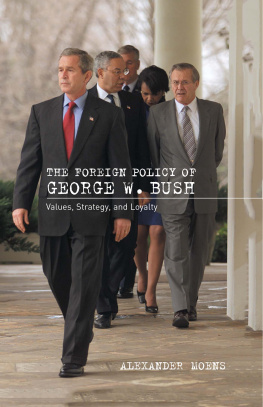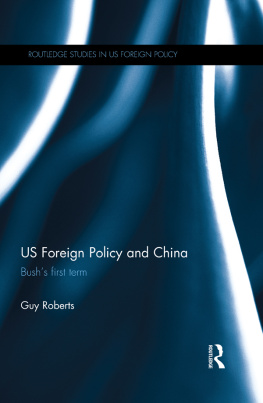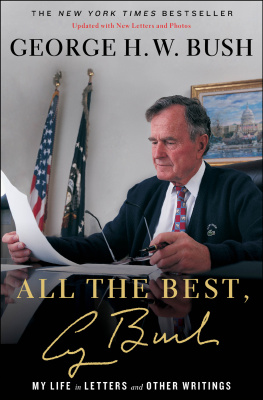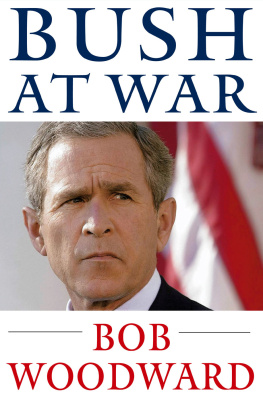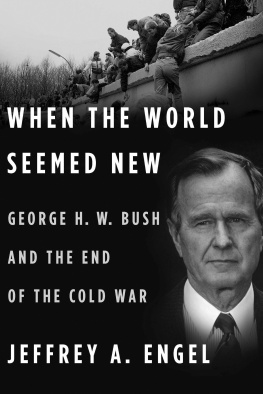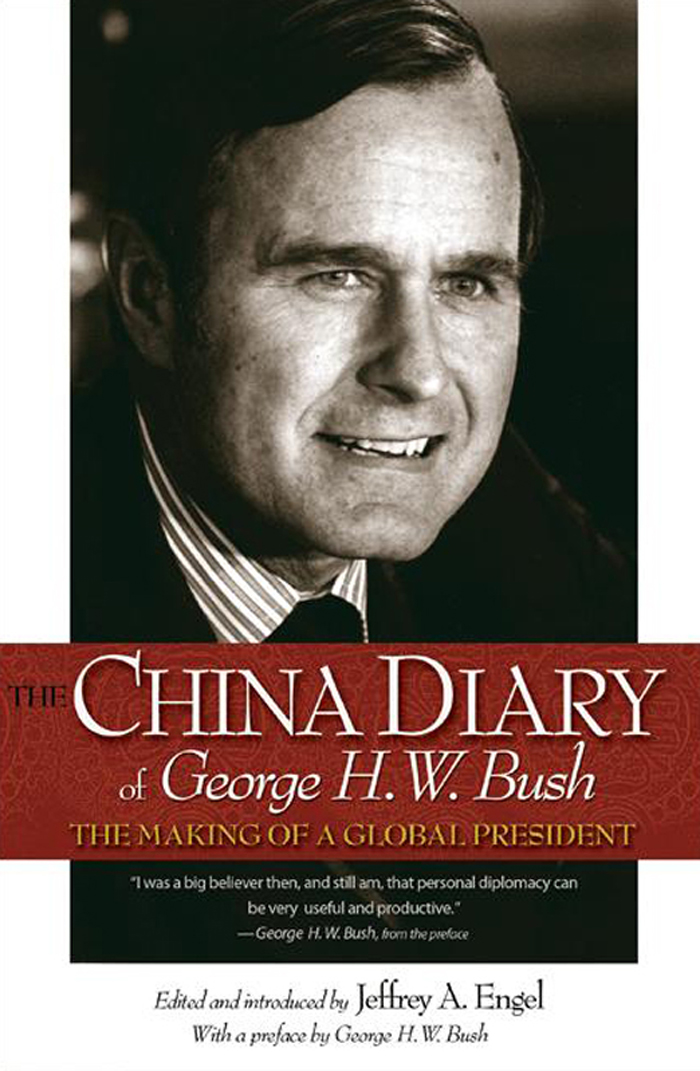THE CHINA DIARY OF GEORGE H. W. BUSH

THE C HINA D IARY
of George H. W. Bush

THE MAKING OF A
GLOBAL PRESIDENT
Edited by
Jeffrey A. Engel
PRINCETON UNIVERSITY PRESS PRINCETON AND OXFORD
Diary and preface copyright 2008 by George H. W. Bush
All other material copyright 2008 Jeffrey A. Engel
Requests for permission to reproduce material from this work should be sent to Permissions, Princeton University Press
Published by Princeton University Press, 41 William Street, Princeton, New Jersey 08540
In the United Kingdom: Princeton University Press, 6 Oxford Street, Woodstock, Oxfordshire OX20 1TW
All Rights Reserved
Library of Congress Cataloging-in-Publication Data
The China diary of George H. W. Bush : the making of a global president / edited by Jeffrey A. Engel.
p. cm.
Includes bibliographical references and index.
ISBN 978-0-691-13006-4 (hardcover : alk. paper)
1. Bush, George, 1924 Diaries. 2. DiplomatsUnited StatesDiaries.
3. United StatesForeign relationsChina. 4. ChinaForeign relationsUnited States.
5. United StatesForeign relations19741977. 6. PresidentsUnited StatesDiaries.
I. Engel, Jeffrey A.
E882.A3 2008
973.928092dc22 2007047900
British Library Cataloging-in-Publication Data is available
This book has been composed in Sabon and Bernhard Modern by Princeton Editorial Associates, Inc., Scottsdale, Arizona
Printed on acid-free paper.
press.princeton.edu
Printed in the United States of America
10 9 8 7 6 5 4 3 2 1
Dedicated to the students of the Bush School, for whom public service is indeed a noble calling

Think about this. We have the Soviet Union to the north and the west, India to the south, and Japan to the east. If all our enemies were to unite, attacking us from the north, south, east, and west, what do you think we should do?... Think again. Beyond Japan is the United States. Didnt our ancestors counsel negotiating with faraway countries while fighting with those that are near?
Mao Zedong, August 1969

Not only we but all the people of the world will have to make our very best effort if we are going to match the enormous ability, drive, and discipline of the Chinese people.... Otherwise, we will one day be confronted with the most formidable enemy that has ever existed in the history of the world.
Richard Nixon, February 1972
It is my hope that I will be able to meet the next generation of Chinas leaderswhomever they may prove to be. Yet everyone tells me that that is impossible. George H. W. Bush, October 1974

CONTENTS
CHAPTER ONE
Everybody in the United States Wants to Go to China
October 21 to November 1, 1974
CHAPTER TWO
Public Posture versus Private Understanding
November 2 to November 21, 1974
CHAPTER THREE
We Must Not Capitulate on Matters This Fundamental
November 22, 1974, to January 15, 1975
CHAPTER FOUR
Much of the World Depends on the United States
February 6 to March 9, 1975
CHAPTER FIVE
When It Is a Matter of Principle It Really Means Do It Their Way
March 10 to April 15, 1975
CHAPTER SIX
We Do Have Principles and It Is Time We Stood Up for Them
April 16 to June 2, 1975
CHAPTER SEVEN
There Is No Credit in This Work
June 3 to July 4, 1975
CHAPTER EIGHT
I Have Studied Chinese
July 5 to August 22, 1975
PREFACE
Nearly thirty-five years ago I made a decision that not only profoundly changed my life, but would forever change my view of the world, particularly of the land then called The Sleeping Giant.
Richard Nixon had just left office, forced out by Watergate, and I finally was able to leave my job as chairman of the Republican National Committee. Never in our lives, before or since, have Barbara and I craved change more. We wanted out of Washington and as far away as possible from the ugliness of Watergate. We also wanted both a new adventure and a new challenge.
President Ford kindly asked me to choose between two of the most plum assignments he had the power to offer: an ambassadorship to either London or Paris. I shocked President Ford, and certainly my family, when instead I asked if I could go to China. (The look I got was reminiscent of 1948, when I broke the news to friends and family that I had turned down a job on Wall Street and that Barbara and I were moving to West Texas.)
The United States had only recently ended its quarter-century-long silence with the Peoples Republic of China. Only two years before, President Nixon had been the first American leader to speak directly with his Chinese counterpart, Mao Zedong, since Franklin Roosevelt. China was then, both figuratively and literally, very far away. To most Americansto most of the worldit was an unknown entity. It was a country clearly on the move, but still restrained by the strict bounds of communism.
My reasoning was actually quite simple: It was obvious then that Asia would rise in importance on the world scene. And it was inevitable that China would eventually become a power broker, not only in the Pacific but in the world. China was, quite simply, the place to be.
Because we still did not have formal diplomatic relations with Beijing, I would not actually be an ambassador. Instead, I would simply be head of the United States Liaison Office. This minor point of protocol did not matter. Barbara and I set off for what would be one of the greatest adventures of our lives.
From the minute we landed, we knew life would be different for us. The first night, when we took our dog Fred for a walk, we got confused and sometimes even scared stares. As it turns out, dogs were scarce in China, and some people had never seen such a creature. I can only imagine what our Chinese neighbors must have thought to see such a strange sight, two Americans walking a dog.
You have to understand that Beijing then was not the modern-day, bustling city it is today. (Barbara likes to say that over the years, through our many visits to China, weve seen the country go from black and white to Technicolor.) And the Chinese were not in the 1970s the global power they are today. They were, instead, a proud people with a proud heritage and powerful aspirations. But they lacked a certain confidence in their dealings with foreigners, especially Western diplomats. It was hard to get to know my Chinese counterparts. Some told me not to bother. The Chinese dont want to talk to Americans, I heard time and again. I didnt believe them. Barbara and I determined that we would make the most of our time in Beijing by making as many friends and contacts as possible.


